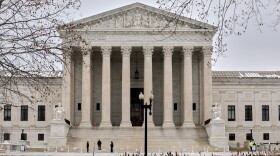The City of Sarasota is moving forward with a goal of reaching 100% renewable energy generation by 2045. In collaboration with the Sierra Club, the Race to Zero campaign and local partners and communities, the city will be working to identify how to create a more affordable and equitable clean energy future.
“The City of Sarasota has been on the forefront of the sustainability movement in Florida and is proud of its ambitious renewable energy goals,” said the city's Sustainability Coordinator Jeff Vredenburg. “Planning for targets that are decades in the future can be daunting. This partnership will help the city set an early course to achieve our goals.”
More than 180 cities, 10 counties, and eight states across the country have goals to power their communities with 100% clean, renewable energy, but the National Sierra Club has designated the state of Florida as a high priority in the campaign. Sarasota will begin by embarking on a deep energy analysis, tapping into publicly available data from two online tools developed by the U.S. Department of Energy (DOE) and the National Renewable Energy Laboratory (NREL).
The State and Local Planning for Energy (SLOPE) Platform and the Low-Income Energy Affordability Data (LEAD) Tool will be used to create customized analyses that can inform decisions. The City of Sarasota then will begin taking steps to incorporate renewable energy technologies, reduce energy consumption and eliminate fossil fuel dependence.
Doreen Dupont, 69, has been a resident of Sarasota County since 1992. She said she fully supports the city’s goal, but wishes it was more ambitious. “I think it's great that they made the commitment towards renewable energy,” she said. “It's definitely something in the right direction but in reality, it's not nearly soon enough.”
Dupont trained under Al Gore in his Climate Reality group a few years ago, and said she has a lot more information about these environmental issues than most people. She has no doubt that the city will be able to reach its 2045 deadline, but fears that environmental catastrophe will have struck by then. “It's so far off in the future,” she said. “I don't see them not meeting the goal, but it may not actually mean that much toward towards our ultimate survival. The situation is dire, and most people don't realize it.”
Edward Freeman, 54, has been a resident of Sarasota since 1986. In the last ten years he has noticed the county stepping up and addressing environmental issues, but he too thinks that this goal could be pushed along faster. “I wonder why they want to drag their feet for 23 more years?” he said. “I think it's a great goal, but I don't know why they're waiting that long. Seems like if you’re doing something good then you should do it as quick as you can.”
Vredenburg said that the city set its target more than 20 years out because it wants to give everyone affected the time to make necessary changes. “Everybody wants the cake and to eat it too, but when you actually sit down and look at all the steps that we have to go through to hit a transition like this, 22 years seems like a lot of time, but it goes like that," said Vredenburg.
He said asking people to suddenly adopt electric vehicles and electrify entire sectors in just a few years would be impossible. “We have to let them have time to make those changes; the infrastructure to catch up,” he said. “And so actually 2045 for a city-wide goal is pretty forward thinking.”
Vredenburg said that the city is still in the planning stages, and officials can’t predict how infrastructure and policy changes will impact every person in the city, but he said positive and faster changes already are happening. For example, the city has made efforts to achieve one subset of the renewable energy goal that calls for 100% renewable, zero emission energy for municipal operations by 2030.
“Municipal operations energy use is all solar,” he said. “So, we're already seeing that actually. We're a year and two months into that, and that makes a huge difference.” Vredenburg said the city signed on to a novel program offered by FPL called Solar Together. This change is offsetting over 70% of the city’s municipal operations. “Twenty three years from now is both a long time and not a long time, but by setting those goals, we can actually start implementing incremental changes that will hopefully add up in the end.”




